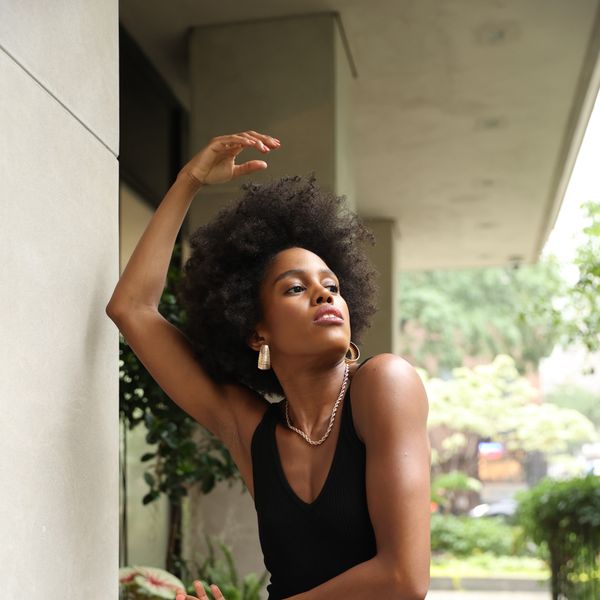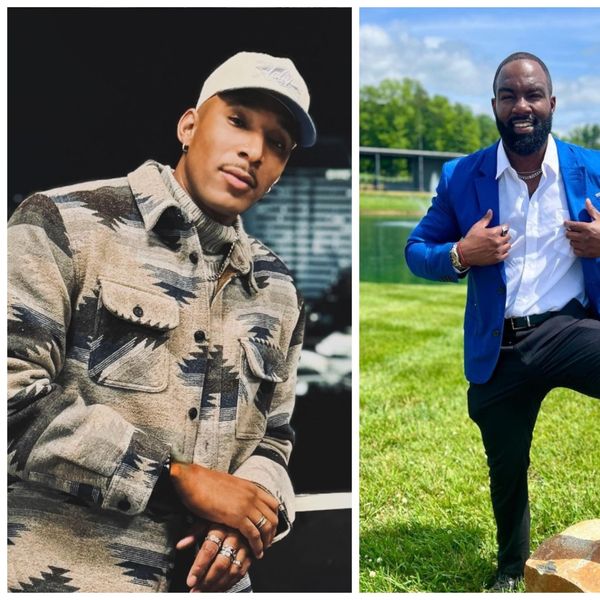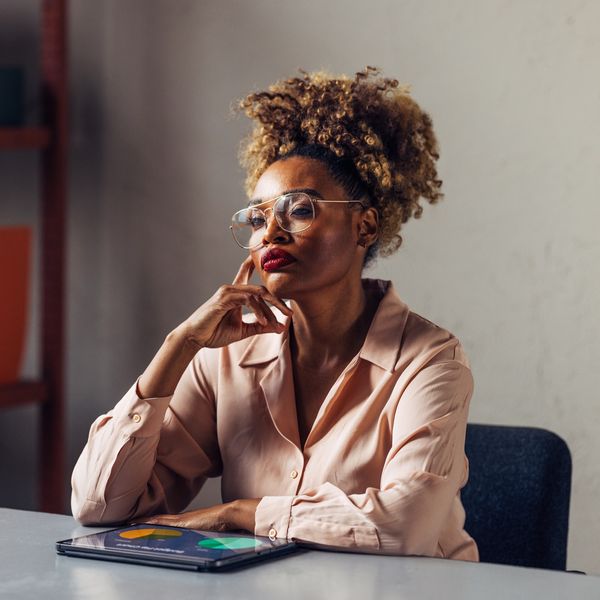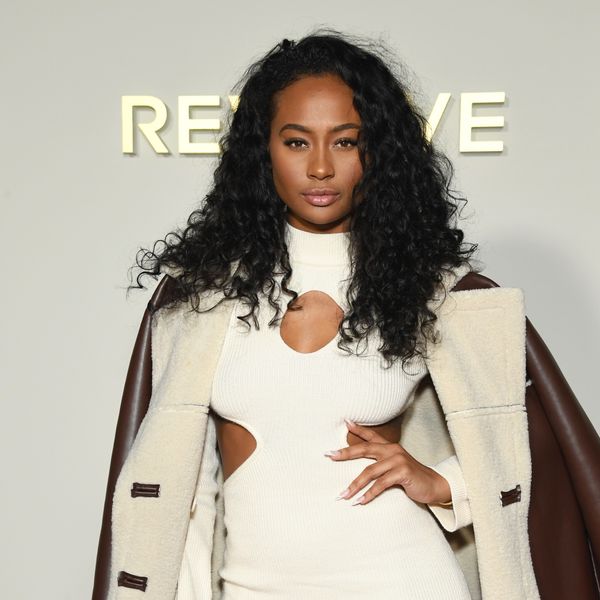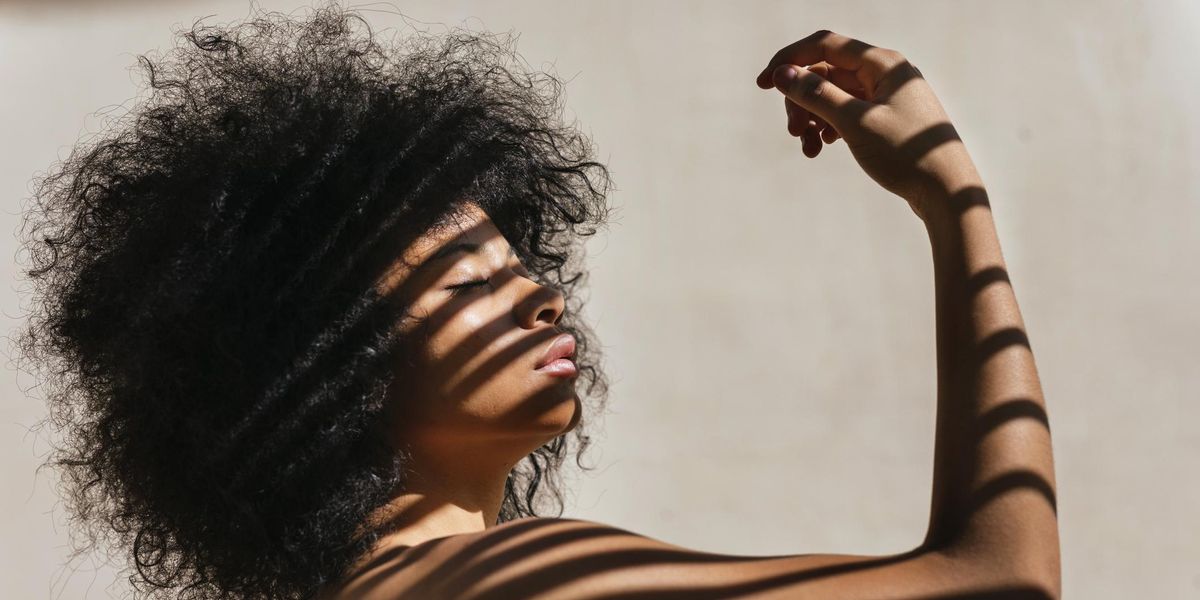
What We Know About Black Femicide In The U.S.: The Unseen Crisis
In America, one woman is fatally shot by an intimate partner every 14 hours. A black woman is fatally shot every 10 hours. This means two black women are killed daily. Forgive me in advance because I know this is gruesome and a very hard pill to swallow. Sometimes, I don't have the stomach for it. I used to work in homicide for a local district attorney's office. I have heard, seen, read, and listened to things that the average woman isn't privy to. Femicide can take many shapes and forms. We often hear about the general rape or murder of Black women in abusive relationships, but femicide can also look like Black fathers harming their daughters, too.
This can happen when a mother decides to leave an abusive situation or is involved with an abusive partner. Take, for example, Alyse and Ava Williams, ages six and nine years old, whose father killed them and then killed himself. Before the incident, he was charged with domestic violence. Police reports stated a domestic dispute occurred between him and his wife before the killing, but this time he murdered their daughters. In another case, Larry Cosby killed his daughter Britney and her girlfriend Crystal because she was a lesbian. This murder is twofold – femicide and homophobia. Austin Stevens raped his 10-month-old daughter which is an example of sex-based violence because she was targeted, and she was a female child.
Femicide can also look like a woman being killed after a man gropes her or a man is rejected by a woman. Shadina Smith, 29, was killed after she told her fiancée she was groped by another man, and they were both shot by the assailant. Aieshia McFadden, 36, was killed in front of her daughter after she rejected the advances of a man who groped her butt. Tiarah Poyau, 22, was shot in the face after telling a man to stop "grinding" on her at a Caribbean parade.
All of these Black women were killed for different reasons, and these examples are all classified as domestic violence. If this is the first time you are hearing the word femicide, you're not alone.

Getty Images
What Exactly Is Femicide?
When I learned what femicide was, my heart sank into my stomach. And I was saddened to learn that my home country of Trinidad tops this list with 6.6 deaths per 100,000 women. We were never valued. It is no surprise that femicide is a worldwide epidemic. Women are murdered across Latin America, South East Asia, the Middle East, Africa, and the Caribbean.
As defined by the World Health Organization (WHO), femicide is the intentional murder of women because they are women, but broader definitions include killings of women or girls.
But let's take a step back to understand that violence against women is a major public health problem and a violation of human rights. According to WHO, violence is the leading cause of injury, disability, and risk factor for other physical, mental, sexual, and reproductive problems. And femicide is happening right here in the United States too. It just looks and sounds a little different than what you might see or read about in other countries.
So, what can we say about femicide in the United States? We can say a whole lot, but almost nothing at all. What I mean by this is that all violence against women is categorized as domestic violence. We don't have a special category for gender-based violence. It's typically ruled as a general homicide. BTW – gender-based violence is the term coined for violence against women and what femicide essentially is. This includes domestic violence and intimate partner violence.
For background and context, the Violence Against Women Act (VAWA) was passed in 1994 to help end domestic violence. VAWA responds to victim needs by holding offenders accountable and allowing for data collection measures to learn more about domestic violence, sexual assault, dating violence, and stalking crimes. And as a result of the government shutdown in 2018, it expired. It was briefly renewed in early 2019 through legislation but expired again. It is currently a stalled bill in the U.S. Senate. However, VAWA is eligible for renewal every five years.
So, what's the holdup then? Domestic violence victims and survivors are just out here unprotected?
The Holdup
- The Boyfriend Loophole: if a person is convicted of domestic violence, current federal law does not prohibit abused or current former dating partners from having firearms, even though more than half of all initiate partner homicide is committed by dating partners.
- Stalker Loophole:if a person is convicted of felony stalking, current federal law only prohibits them from accessing guns, but people convicted of misdemeanor stalking can still legally obtain guns.
The question now is where do we go from here?
Thanks to women like Dawn Wilcox and Rosalind Page, we now have a place to start to understand the extent of the issue. Page has been a nurse for 31 years, she works with the community within the health advocacy space for those who cannot afford insurance or have little to no access to healthcare resources. She also works for the Veterans Affairs Department, lending her expertise to women veterans who have experienced high levels of abuse from within the community and as a serviceperson.
The two, nurses based out of Texas and Arkansas, respectively, have been collecting data and tracking cases of femicide in the United States for roughly five years to fill in the gap in data on femicide and bring awareness to this unseen crisis. Rosalind primarily focuses on femicide in African-American communities, while Dawn focuses on femicide in the U.S. as a whole through her organization Women Count USA to bring awareness, challenge media narratives and societal myths about femicide and domestic violence in the United States.
Rosalind is the founder of Black Femicide US. A Facebook group with more than 23,000 followers focuses on sharing the untold stories of crimes against Black women.
What We Do Know About Femicide In The United States
There is no standard definition of femicide in the United States. Crimes against women, whether it meets the criteria or not, are categorized as domestic violence or defined as intimate partner violence. As defined by the Center for Disease Control (CDC), this includes physical violence, sexual violence, stalking, and psychological aggression. Although the World Health Organization recognizes the killing of women has steadily increased since 2014 in the U.S., it is not recognized as a problem like it is in other countries.
The U.S. doesn't recognize femicide as a special crime, so there is no legal definition of femicide in America because there are no laws for it.
For example, sex crimes are gender-neutral, but there are enhanced penalties if the victim is younger. There are enhanced penalties for domestic violence crimes, but they are hardly used because one can almost never prove the intent was based on gender in a court of law.
Femicide And Black Women
According to the Violence Policy Center, 1,948 women were killed by men in 2017. In the same year, the CDC also reported that Black women experienced the highest rates of homicide than any other racial group in the U.S. The specific issue for Black women is that 4 in 10 Black women experience physical violence in their lifetimes. Twenty percent of Black women have experienced rape during their lifetimes which is higher than other women overall. According to data from the CDC, and the Institute for Women's Policy Research,
Black women face a higher risk of being killed by a man, 2.5 times higher than White women. 9 out of 10 Black women that were murdered knew their killers. The main risk factor is easy access by perpetrators to firearms, both legally and illegally.
From a cultural standpoint, Black women are expected to be strong and able to handle abuse due to the "strong Black women" stereotype.
Data collected and reviewed by Rosalind shows that Southern states appear to have an increase in violence against Black women. This was even before the pandemic and those numbers have seemed to increase. And according to independent data collection, Rosalind concludes on average three Black women or girls are murdered daily. As of today, 230 victims have been recorded.

Getty Images
Femicide Awareness, Advocacy, And Solutions
From a micro and macro level, femicide is an epidemic. There is so much that needs to be done regarding gender-based violence against Black women and all women in the U.S. The most important thing we can do is to have these conversations often. We must be open and honest about this silent crisis in our communities. Men and women alike must acknowledge that this is a problem and urge local, state, and federal politicians to legislate for laws that protect victims and hold perpetrators accountable.
Rosalind Page also points out we can start by, "advocating for stricter sentencing guidelines, having a national Domestic Violence registry (much like the sex offender registry), making femicide a hate crime due to it being a targeted group. More groups dedicated to educating young men and women about what domestic violence looks like. How to recognize that someone may be a victim of it, and getting help. More financial assistance to organizations that help women and children get out of domestic violence situations."
These are only a few ways we can bring awareness to femicide against Black women and femicide in the United States. But it's a start.
Though I have heard stories about women being killed from my days at the district attorney's office or in the news, I personally don't know of anyone who was a victim or is a victim of gender-based violence. I can only hope that we use our voice to speak up. And that we are loud enough to be heard in this ongoing cry for help.
Stop hurting us, stop killing us, and start respecting us.
To learn more about femicide visit Black Femicide US on Facebook and Twitter or Women's Count USA.
Featured image by Getty Images
Camille is a lover of all things skin, curls, music, justice, and wanderlust; oceans and islands are her thing. Her words inspire and her power is her voice. A California native with Trinidadian roots, she has penned personal essays, interviews, and lifestyle pieces for POPSUGAR, FEMI magazine, and SelfishBabe. Camille is currently creating a life she loves through words, self-love, fitness, travel, and empowerment. You can follow her on Instagram @cam_just_living or @written_by_cam.
This article is sponsored by Hulu.
UnPrisonedhas returned for its highly anticipated second season, delving deeper into the complex dynamics of the Alexander family.
The series premiere comes a year after its debut season garnered rave reviews from fans and critics and earned record-breaking ratings for Hulu's Onyx Collective brand. UnPrisoned's success can be attributed to its raw, relatable themes and comedic appeal.
Inspired by creator Tracy McMillan's life, the show follows Paige (Kerry Washington), a therapist and single mother whose life takes an unexpected turn when her father, Edwin (Delroy Lindo) --who was released from prison-- moves in with her and her teenage son, Finn (Faly Rakotohavana).
Throughout UnPrisoned's first season, viewers witnessed how Edwin's incarceration deeply affected Paige's life and relationships. In the series, Paige unpacks her trauma through interactions with her inner child and her online followers. Meanwhile, Edwin is overcoming specific struggles with his own past that led to his life of crime, including a dysfunctional upbringing and his mother's arrest. As the Alexanders attempt to reconcile, new challenges arise.
This new season promises to further explore their unconventional family dynamic. Here are several compelling reasons why season two of UnPrisoned should be on everyone's watchlist.
The Alexander Family Life Is Still In Shambles
UnPrisoned's second season resumes where the series left off, with Paige grappling with the fallout from her troubled therapy practice and Edwin navigating life independently after moving out. Meanwhile, Finn faces his own challenges. The teenager is battling anxiety and seeking information about his father—a topic Paige avoids discussing.
The Alexander Family Are Attending Therapy To Resolve Their Underlying Issues
Amid the chaos in their lives, the Alexander family decides to mend their bond by confronting their past traumas. They seek professional help and attend therapy sessions with a “family radical healing coach,” played by John Stamos, a new cast member. This collective effort aims to unravel the complexities of their shared history and strengthen their relationships.
The process of unraveling each character's internal conflicts and their potential impact on future relationships may clash with Paige's textbook therapy approach. While Paige is used to being in the therapist's seat in both career and family, this forces her into the unfamiliar role of a patient during therapy sessions. This shift would compel her to look in the mirror and try a radically different approach.
The Alexander Family Learned A Big Lesson During A Therapy Session
In therapy, the Alexanders are tasked with addressing their individual traumas to salvage their remaining relationships. One of the family therapist’s eccentric suggestions was an exercise involving a family wrestling match. During this session, Paige faces tough questions about her refusal to share information about Finn's father.
While it's unclear whether this scene is reality or fantasy, the image of the family duking it out in the ring certainly makes for hilarious yet compelling television.
Paige Tries Dating Again Following Failed Relationships
Amid her life's chaos, Paige decides to step back into the dating field. However, her many attempts have left her with mixed results. The dating apps have turned out to be a fail, and an outing with her ex Mal (Marque Richardson), who is also her father's parole officer, doesn’t go quite as expected after he brings an unexpected guest – his new girlfriend.
The situation takes an awkward turn when Mal's new partner learns why the former couple split, partly due to Paige's self-sabotage.
UnPrisoned Is A Perfect Balance Of Comedy And Drama
As a dramedy, UnPrisoned takes a comedic approach to its heavy subjects. The show takes us on a ride with Paige's dating misadventures and navigating a friendship with her ex.
Other lighthearted moments include Edwin's attempts at CPR based on online videos and, of course, the antics of the Alexander family's unconventional new healing coach.
The second season of UnPrisoned is now available on Hulu.
UnPrisoned | Season 2 Trailer | Hulu
Feature image courtesy
Blair Underwood Initially Turned Down 'Sex And The City' Because 'It Was About How Samantha Was Fascinated By Dating A Black Man’
Actor and heartthrob Blair Underwood is opening up about why he turned down Sex and the City the first time he was offered a role. Many fans of the HBO series may recall Blair's time on the show in which his character was dating Miranda (Cynthia Nixon). However, he was previously offered another role where his character would date Samantha (Kim Cattrall).
During his interview with AV Club, the Set It Off star revealed that he was uncomfortable with the initial offer due to the character's fascination with him being a Black man.
“I actually did say ‘no’ the first time,” he said. “The first time they had offered the role, to be honest with you, it was about how Samantha was fascinated by dating a Black man and wanted to know if, uh, all of the rumors were true about our anatomy! And I said, ‘Listen, I’m honored, thank you, but I just don’t want to play a character based on race, on curiosity about a Black man.'”
But that didn't stop them from reaching out again. This time he was offered to play Dr. Robert Leeds, the love interest to Miranda and he decided to go for it. "So they were nice enough to call about a year later, and I said, 'Well, is it gonna be about race?' And they said, 'No, no, no, we’re not even gonna mention race!' And I think it really did only come up maybe once," he recalled.
"It did five episodes, and I think Samantha mentioned it once, saying something about 'a Black doctor' that Miranda was dating. And that’s really been a consistent thing in my career: not wanting to be boxed as 'the Black guy.'
"I’ve had that conversation with many producers along the way, and they were so great. They said, 'No, he’s just a doctor who Miranda meets in the elevator, and they have a nice little fling.' And it was amazing."
Blair has had a wide-ranging career playing everything from a lawyer on L.A. Law to playing Madame CJ Walker's husband on Self Made: Inspired by the Life of Madame CJ Walker. And during his interview, he revealed another role that he initially turned down, Set It Off. The movie, which is considered a classic in Black culture, stars Queen Latifah, Jada Pinkett Smith, Vivica A. Fox, and Kimberly Elise. Blair's character, Keith, played a banker and love interest to Jada's character, Stony.
He explained why he said no at first and eventually accepted the offer. "I had initially said “no” to that. Because I was playing this historic, iconic African-American historical figure in Jackie Robinson, and the time, y’know, there was Boyz N The Hood, and Menace II Society was out there, and I’d finished playing this noble Negro… [Laughs]," he said.
"And I’m reading the script, and there’s a scene where Jada Pinkett’s character—Jada Pinkett-Smith now—was going to sell her body so she could make some money to send her brother to college. And I remember, honestly, I threw the script across the room. I was, like, “I don’t want to do this. I want to do something uplifting for the Black culture and Black characters, and I don’t know if I want to see this.”
After a conversation with the movie's director F. Gary Gray and the actor's manager encouraging him to finish reading the script, Blair had a change of heart. What he first thought about the movie turned out to be totally different.
"So I finished the script, and I saw that the character they were asking me to play was really the love story in the midst of all of this turmoil of all of these characters, the four ladies: Queen Latifah, Vivica Fox, Kimberly Elise, and Jada," he explained.
"It was so well-written, it was such a great platform for them. And to be able to play the love story and the storyline that gave Jada’s character a leg up and a way out of this world, something to hope for, to wish for, someone to love her… I said, 'You know what? I’d like to be a part of that.'
"And I’m so glad I did, because that film resonates to this day. People all the time come up to me and say that they love that movie. So I’m glad that I did it."



